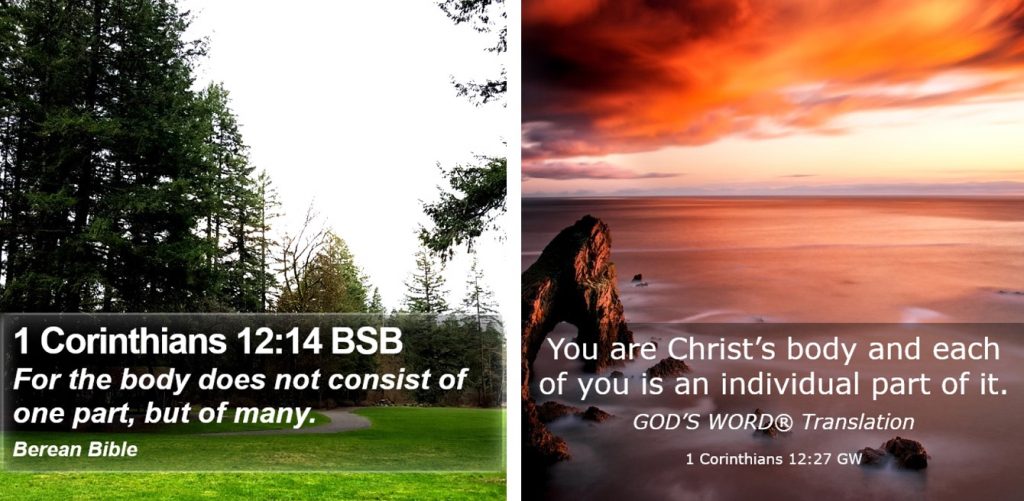“Go therefore and make disciples of all the nations…teaching them to observe all that I commanded you; and lo, I am with you always, even to the end of the age” (Matthew 28:19-20, NASB).
——————–
Contents:
1) “400 Years of Silence” (Jarrod M. Jacobs)
——————–

-1-
“400 Years of Silence”
Jarrod M. Jacobs
The period between the end of the book of Malachi and the time of Christ’s coming to earth is often referred to as the “400 years of silence.” It is commonly referred to in this way because, in those years, no inspired books were written. Since this is true, some might assume that God left man alone and waited for Christ to be born. We might think nothing of spiritual importance happened in these years. Yet, this is not an accurate assumption of this time in man’s history.
Just because God did not inspire men to write books at this time, are we safe in assuming that this means God was not speaking to man? Were men only “counting time” for 400 years? I view these 400 years as a fascinating period in Biblical history and the broader history of men in general. Why do I say this? Living during these 400 years meant …
Men Saw Bible Prophecies Fulfilled.
A prime example of this is seen in the book of Daniel. Daniel was called to be God’s prophet when he was taken into Babylonian captivity at an early age (Dan. 1-2). While still a young man, he stood before Nebuchadnezzar, and by God’s inspiration, told Nebuchadnezzar his dream and interpreted it (Dan. 2:29-45). This dream prophesied of four coming kingdoms, three physical and one spiritual, that would arise after Babylon. It was during these four hundred years of “silence” that much of his dream was fulfilled.
Some years after the interpretation of Nebuchadnezzar’s dream, Daniel had a vision of a ram and goat who fought with one another by the river Ulai (Dan. 8). This vision was a foretelling of the kingdoms of the Medes and Persians and their struggle and loss to the Greeks (Dan. 8:19-27). The fulfillment of these events is not recorded for us in Scripture, because it happened during those 400 “silent” years! The rise and fall of the Greek Empire (torso/thighs of brass, Dan. 2:32, 39, 7:21-22) happened during this time as well.
Yes, God’s prophecies were fulfilled during those days! Men and women with eyes to see and ears to hear would have taken note of this and realized that God is powerful and very much in control (Dan. 4:17, 32, 5:21).
Men Had the Complete Old Testament By Which To Live.
During these 400 years, the Jews would have had access to all thirty-nine Old Testament books. They had access to the knowledge of God’s word that folks in Moses’ day or David’s or Isaiah’s, etc., did not have. They had all the truth God had revealed up to that point!
In these years, the Septuagint (Greek translation of the Hebrew Scriptures) was completed. Now, not only those who spoke Hebrew, but also those who spoke Greek, could see the “big picture” as they looked forward to Messiah’s coming (Jn. 4:25-26). No doubt, such knowledge of the Scripture is what kept people like Simeon and Anna faithful to God throughout their lives (Lk. 2:25-38). Remember, they would have been living at the end of these 400 years. All they had to follow was the written word of the Old Testament, and they kept it faithfully. God’s word then had the power to produce faith in people as it does today (Rom. 10:17). This is what those folks lived by until they saw the Lord’s Christ with their own eyes! Just think of the people unknown to us, but known to God, who faithfully continued in the Lord’s will all of those years. Think of those who lived near the end of those 400 years and got to see and hear Christ upon this earth! Their faith and perseverance should inspire us today.
Men Could Receive God’s Blessings.
Remember that those living in this time had passages of Scripture to comfort and strengthen them, as well as God’s promised blessings to them for their obedience. They had access to such passages as:
“I have been young, and now am old; yet have I not seen the righteous forsaken, nor his seed begging bread” (Ps. 37:25).
“Trust in the LORD with all thine heart; and lean not unto thine own understanding. In all thy ways acknowledge him, and he shall direct thy paths” (Prov. 3:5-6).
“And now, Israel, what doth the LORD thy God require of thee, but to fear the LORD thy God, to walk in all his ways, and to love him, and to serve the LORD thy God with all thy heart and with all thy soul, To keep the commandments of the LORD, and his statutes, which I command thee this day for thy good?” (Deut. 10:12-13).
In addition to these passages, we know they could become wise through their study and obedience to God’s word (Ps. 119:98-100; II Tim. 3:15). Those people could read the Scriptures, learn from them, live them, and be blessed during those 400 years. They also had numerous examples of folks living by faith, living examples of those who pleased God (Heb. 11).
Those living during the 400 years were in a unique place in history. They saw many Old Testament prophecies fulfilled, and this would build their confidence that other prophecies, such as Messianic prophecies, would be fulfilled as well!
Modern-Day Applications
As I think about those folks living during the 400 years, I think we Christians have much in common with them. Can you see any similarities?
One way we are similar is that, just like those folks, we can observe fulfilled prophecies. Though they looked forward to Christ coming to earth, in our case, we point to the fulfillment of all the Messianic prophecies and look forward to the Savior’s final return (I Thess. 4:13-17; etc.). The Lord’s Christ came to this earth, and while here fulfilled 332 prophecies concerning Himself. These prophecies, such as His birth in Bethlehem (Mic. 5:2) and His crucifixion (Ps. 22), were fulfilled in remarkable detail. The existence of so many fulfilled prophecies makes it plain that God inspired the Bible we read and study (II Tim. 3:16-17)!
Not only is this the case, but we also have the completed word to guide our lives (Jude 3). Like those folks, we have access to God’s knowledge, knowledge to which the people from the first century and before did not have access. The glaring difference between us and those in those 400 years is that they lived according to the Old Testament’s mandate, but a New Testament was to come (Jer. 31:31-34)! We, on the other hand, have the completed New Testament to hear, believe, and obey (Matt. 28:18-20; Heb. 8:6-13, 12:24; II Cor. 3:6-14).
Of course, we are also aware of the fact that by following the New Testament, we will be blessed by God (Jas. 1:25; Rev. 1:3, 22:14). This principle of hearing, believing, obeying, and receiving a blessing has been seen since the beginning of time, and it is still true today! Just as folks during those 400 years were blessed when they followed the Lord’s will, so also, we today are blessed by God when we are obedient (Rev. 22:14)!
Conclusion
When we think about it, we see that describing the time between the Old and New Testaments as a time of “silence” is a misnomer. True, God did not inspire men to write a book or letter that was included in the canon of Scripture. Yet, does this mean God was “silent”? Could men today say that God has been silent since there have not been any more verbally inspired books since the first century (Jude 3)? Of course, not! We now have access to His completed word. God speaks today just as clearly as ever through the words of Christ recorded for us on the printed page (Heb. 1:1-2; Eph. 3:4; Rev. 1:3; II Tim. 2:15; etc.). Let us hear Him, believe, and obey!
— Via The Ancient Landmark, June 20, 2025
——————–
The Steps That Lead to Eternal Salvation
1) Hear the gospel — for that is how faith comes (Rom. 10:17; John 20:30-31).
2) Believe in the deity of Jesus Christ, the Son of God (John 8:24; John 3:18).
3) Repent of sins. For every accountable person has sinned (Romans 3:23; Romans 3:10), which causes one to be spiritually dead (Ephesians 2:1) and separated from God (Isaiah 59:1-2; Romans 6:23). Therefore, repentance of sin is necessary (Luke 13:5; Acts 17:30). For whether the sin seems great or small, there will still be the same penalty for either (Matt. 12:36-37; 2 Cor. 5:10) — and even for a lie (Rev. 21:8).
4) Confess faith in Christ (Rom. 10:9-10; Acts 8:36-38).
5) Be baptized in water for the remission of sins (Mark 16:16; Acts 2:38; 22:16; 1 Pet. 3:21). This is the final step that puts one into Christ (Gal. 3:26-27). For from that baptism, one is then raised as a new creature (2 Cor. 5:17), having all sins forgiven and beginning a new life as a Christian (Rom. 6:3-4). For the one being baptized does so “through faith in the working of God” (Col. 2:12). In other words, believing that God will keep His word and forgive after one submits to these necessary steps. And now as a Christian, we then need to…
6) Continue in the faith by living for the Lord; for, if not, salvation can be lost (Matt. 24:13; Heb. 10:36-39; Rev. 2:10; 2 Pet. 2:20-22).
——————–
Tebeau Street
CHURCH OF CHRIST
1402 Tebeau Street, Waycross, GA 31501
Sunday: 9 a.m. Bible Classes and 10 a.m. Worship Service
Wednesday (all but the first): 7 p.m. Bible Classes
First Wednesday of the month: 7 p.m. Congregational Song Service (about 45 minutes of singing, followed by a short talk)
evangelist/editor: Tom Edwards (912) 281-9917
Tom@ThomasTEdwards.com
https://thomastedwards.com/go/all.htm (This is a link to the older version of the Gospel Observer website, but with bulletins going back to March 4, 1990.)


















